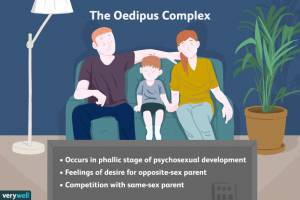Annotated 9-19
 I don’t see the cliche “Psychologists would have a field day” much anymore, which makes me wonder: is it still a cliche? A dated phrase? Or would it now feel like a new observation? Anyway, if Arkerra had psychologists as such, and if Best were anything like honest with them, they would have a field day with his “weird place” and what it might say about his ability to have intimacy with– anybody, really.
I don’t see the cliche “Psychologists would have a field day” much anymore, which makes me wonder: is it still a cliche? A dated phrase? Or would it now feel like a new observation? Anyway, if Arkerra had psychologists as such, and if Best were anything like honest with them, they would have a field day with his “weird place” and what it might say about his ability to have intimacy with– anybody, really.
As I mentioned here, Best does have some fairly well-hidden psychological scars from his upbringing. They don’t excuse everything, but they do explain some things.
Having written a memoir of my own by now, I gotta say you have to admit to at least most of your embarrassing vulnerabilities if you’re going to be able to look people in the eye and say “this is my life story” afterward. It’s not for the squeamish, and that’s a particular kind of courage Best doesn’t have yet. He’ll gain it, but not until the last few chapters.











It’s dated because Freud and psychoanalysis have fallen out of favour with the psychological community due to being unscientific – and there aren’t many other theories that touch on weird little themes like he did. Psychologists had “field days” with Freud’s work because that was about bringing out “the secrets of the mind” from seemingly innocuous symptoms, whereas today’s psychology is about explaining and fixing things that can be measured and observed. Much less exciting – and much less fascinating work for a quack to perform for an audience.
I’d contend that it’s also fallen out of favor because no one knows what a field day is any more.
We’ve obviously come a way since Freud, but I don’t think we’re so far removed from him that psychologists of all sorts don’t look at a phrase wildly out of place and go “Hmmm, that might be significant.”
I don’t think anyone thinks misspeaking is morse-code from the Subconscious self, anymore.
Misspeaking is far more common than we take note of, since speech is actually a cooperative effort.
In other words, we don’t even perceive most of the misspeaks… we only really stand a chance of noticing the ones that would make sense in more context than one.
We notice freudian slips because we have a dirty mind :D
General-purpose misspeaking is indeed common, and it was common in Freud’s day too. I don’t think anyone was ever tracking the number of “ums” and “uhs” or mispronunciations with a feeling that all or even most of them were linked to some dark secret. (I was a lot happier once people stopped looking for a psychological explanation for my stutter and just taught me to make mouth-sounds better.)
But that’s why I said “wildly out of place.” Writing character dialogue is predicated on the idea that our words reveal more about who we are than we consciously choose to reveal, and that better be true, or I’ve been writing and reading everything wrong for most of my life.
Also, it’s overstating the case to imply that psychoanalysis and Freud have no influence on modern psychology, just because some of his ideas have gone to the curb. Science knocks down some old ideas, but it builds on others, and reworks them as the context changes. Freudian slips, for instance, were more “out of place” in Freud’s day because he did his work not long after the Victorian era, when sexual matters were more rarely spoken of. Today, it’s a much more notable outlier when someone uses a word for a disadvantaged group that appears at odds with their stated beliefs about that group. In both cases, jumping to conclusions is a bad idea, but collecting and weighing notable data is not.
The root of Freud’s Oedipus-complex idea is that normal and heterosexual* men have a subconscious attraction to their mothers… and I do think it’s a valid observation that a lot of guys pick partners who resemble their mothers somehow. They’re the first women we’ve ever loved. What we’ve grown up with is what’s normal for us. But today, people tend to use “Oedipal” to describe those who are taking this general tendency to specific lengths that’d make most people uncomfortable.
At least Best is self-aware enough to know he’s being inappropriate even in his own head, but this is a “weird place” that none of the other main characters’ minds would’ve gone (except maybe Carol, and if so, she’d be the exception that proves the rule). He’s not a classic Freudian case– for one thing, his father is entirely unknown to him rather than a target for resentment– but the comparison is close enough to be instructive.
*One thing we have left behind is that in Freud’s day, “normal” and “heterosexual” were considered one and the same, but I think LGBT people also tend to pick partners who resemble the people they grew up with. Changing contexts.
Eh, in my experimental psychology degree, Freud was taught as an aside in first year classes. I read some of his work and liked it, but we didn’t build on him. We built largely on Skinner and the behaviourists, and as regards childhood, we built on attachment theory. Perhaps other schools are different, but we really did leave him directly in the dust.